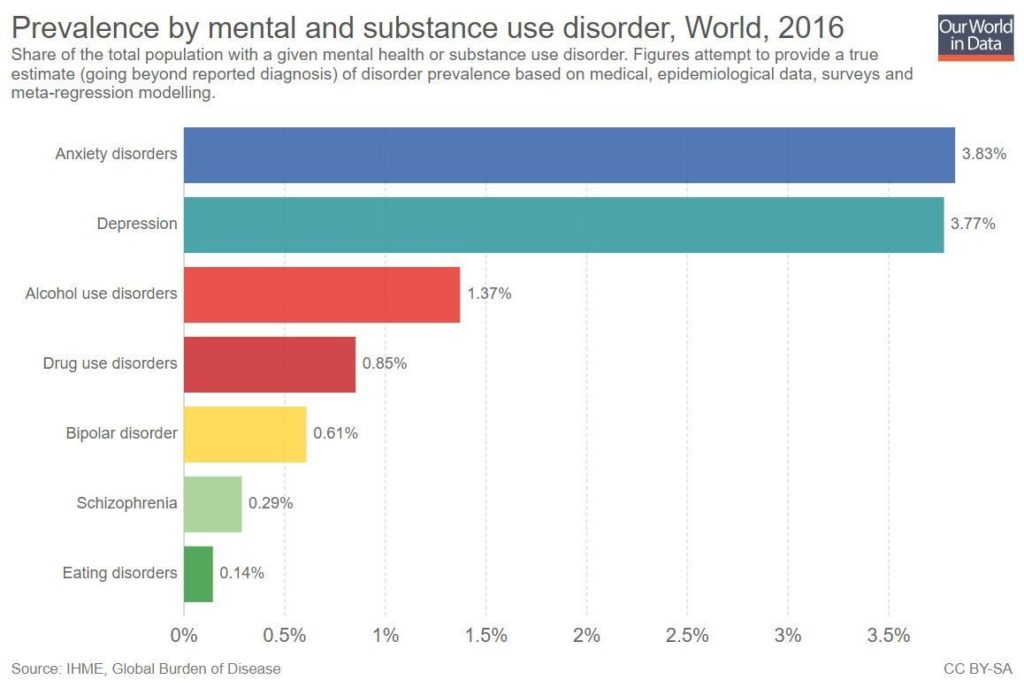Time to rethink Mental Health, especially anxiety disorders and depression

The global mental health crisis could cost the world $16 trillion by 2030. With mental disorders on the rise in every country in the world, nowhere is immune.
Poor mental health stops employees from reaching their full potential and forces them to take more sick days, stunting productivity and economic growth. This is also a challenge with society-wide ramifications. Loneliness and isolation affect many of the most vulnerable among us. People with serious conditions such as schizophrenia or bipolar disorder are especially likely to be marginalised by their communities. Those with the most severe conditions pay with their lives, dying prematurely – as much as two decades before their time.
Fortunately, coming into Davos this year we are riding a sea change in how the world approaches mental health.
–> Keep reading Why this is the year we must take action on mental health over at the World Economic Forum blog.
Article in context:
- Five reasons the future of brain enhancement is digital, pervasive and (hopefully) bright
- Mindstrong Health identifies digital biomarkers of cognitive function using smartphone data
- Learn more and discuss at the 2019 SharpBrains Virtual Summit: The Future of Brain Health (February 26–28th)
- Presentation by Dr. Tom Insel at the 2017 SharpBrains Virtual Summit:



Hi, Thanks for your top-notch article. Most likely, depression is caused by a combination of genetic, biological, environmental, and psychological factors, according to the NIMH. Certain medical conditions may also trigger depression, including an underactive thyroid gland, cancer, heart disease, prolonged pain, and other significant illnesses.
Agreed.